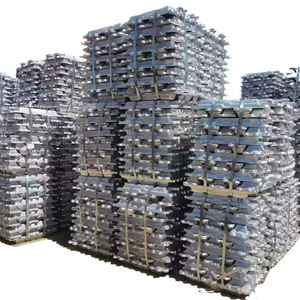The Ultimate Guide To Alcast Company
About Alcast Company
Table of ContentsThe Of Alcast CompanyAlcast Company for DummiesAlcast Company Fundamentals ExplainedThe 15-Second Trick For Alcast CompanyAlcast Company Can Be Fun For AnyoneLittle Known Questions About Alcast Company.
Chemical Comparison of Cast Aluminum Alloys Silicon promotes castability by reducing the alloy's melting temperature level and improving fluidness during casting. Furthermore, silicon contributes to the alloy's strength and use resistance, making it beneficial in applications where durability is essential, such as automobile parts and engine components.It also boosts the machinability of the alloy, making it much easier to process right into ended up products. In this means, iron adds to the overall workability of light weight aluminum alloys.
Manganese contributes to the toughness of aluminum alloys and enhances workability. Magnesium is a lightweight aspect that provides toughness and influence resistance to aluminum alloys.
More About Alcast Company
Zinc improves the castability of aluminum alloys and helps manage the solidification procedure during spreading. It enhances the alloy's stamina and firmness.

The primary thermal conductivity, tensile toughness, return toughness, and elongation vary. Select appropriate resources according to the efficiency of the target product produced. Among the above alloys, A356 has the greatest thermal conductivity, and A380 and ADC12 have the cheapest. The tensile limit is the opposite. A360 has the best yield strength and the highest elongation rate.
Indicators on Alcast Company You Should Know

In accuracy spreading, 6063 is fit for applications where complex geometries and high-quality surface area finishes are extremely important. Examples include telecommunication enclosures, where the alloy's premium formability permits smooth and visually pleasing styles while maintaining structural stability. In the Lighting Solutions market, precision-cast 6063 components develop elegant and reliable illumination fixtures that need elaborate shapes and good thermal efficiency.
It causes a better surface coating and far better deterioration resistance in A360. Moreover, the A360 exhibits remarkable prolongation, making it perfect for complicated and thin-walled parts. In accuracy spreading applications, A360 is fit for industries such as Consumer Electronic Devices, Telecommunication, and Power Devices. Its improved fluidity enables elaborate, high-precision components like smartphone coverings and interaction device real estates.
The Greatest Guide To Alcast Company
Its special homes make A360 a valuable option his explanation for accuracy spreading in these industries, improving item durability and high quality. Aluminum alloy 380, or A380, is a widely utilized spreading alloy with several distinct qualities. It supplies excellent castability, making it an optimal selection for precision casting. A380 exhibits good fluidity when molten, making certain intricate and in-depth mold and mildews are properly duplicated.
In accuracy casting, aluminum 413 radiates in the Consumer Electronic Devices and Power Devices industries. This alloy's superior deterioration resistance makes it an outstanding choice for exterior applications, guaranteeing long-lasting, long lasting products in the pointed out industries.
The Single Strategy To Use For Alcast Company
Once you have determined that the aluminum die casting procedure is appropriate for your project, a critical next step is choosing the most suitable alloy. The light weight aluminum alloy you pick will substantially affect both the spreading procedure and the homes of the final item. Due to this, you must make your decision very carefully and take an enlightened approach.
Establishing one of the most ideal light weight aluminum alloy for your application will imply weighing a vast selection of features. These relative alloy characteristics adhere to the North American Die Casting Association's guidelines, and we've divided them right into 2 categories. The first classification addresses alloy qualities that affect the production procedure. The second covers attributes influencing the buildings of the end product.
The Best Guide To Alcast Company
The alloy you pick for die casting directly affects numerous aspects of the spreading process, like how very easy the alloy is to deal with and if it is vulnerable to casting defects. Warm cracking, likewise recognized as solidification breaking, is a normal die casting defect for aluminum alloys that can lead to interior or surface-level splits or splits.
Specific light weight aluminum alloys are much more prone to hot breaking than others, and your option should consider this. One more typical issue found in the die casting of light weight aluminum is pass away soldering, which is when the actors sticks to the die walls and makes ejection tough. It can harm both the actors and the die, so you should try to find alloys with high anti-soldering residential or commercial properties.
Rust resistance, which is currently a remarkable quality of light weight aluminum, can differ substantially from alloy to alloy and is an important characteristic to think about depending upon the environmental conditions your product will be exposed to (aluminum metal casting). Put on resistance is an additional residential or commercial property typically sought in aluminum items and can set apart some alloys